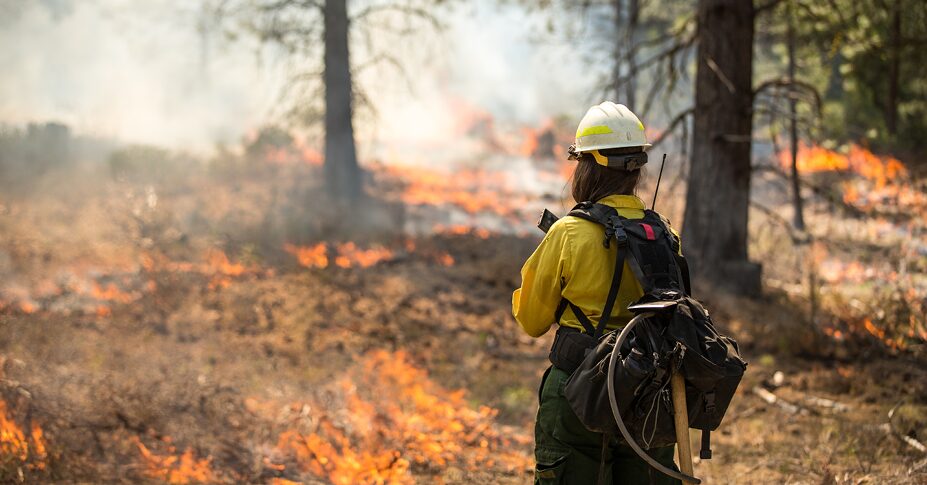Nearly Limitless Options
in One IRA
Invest in both traditional and alternative assets with a single custodian – ready to go beyond a self-directed IRA?
Investor Insights Blog|Nationwide Impact of the Los Angeles Wildfires
Real Estate

The recent wildfires in Los Angeles have left a significant mark on the region. Thousands of homes have been destroyed, communities have been disrupted, and recovery efforts are now underway. Even if you weren’t directly affected, these events will likely have lasting impacts throughout the country and provide an opportunity to test our own preparedness for disaster.
The fires have devastated neighborhoods, with thousands of homes lost and critical infrastructure severely damaged. This has strained the local economy, displaced families, and intensified an already tight housing market. As residents seek temporary or permanent housing in nearby regions or even out of state, pressure on housing availability continues to grow.
Data shows that the housing market in Los Angeles already heavily favored sellers prior to the fires. This means with so much expensive property already lost to the blaze, the market will lean heavily in their direction once the fires are under control and the market picks back up.
Even before the fires, Los Angeles had one of the tightest housing markets in the country. With limited availability and high demand, finding affordable housing was already a significant challenge for many residents. The fires have worsened the situation, displacing thousands and creating additional pressure on the existing housing stock.
This will likely impact real estate in other parts of the country. Many affected residents are relocating to other regions, including the Northeast, in search of housing. This migration has placed further strain on markets in those areas, driving up rental prices and competition for homes. For those who choose to stay, the process of finding temporary housing or rebuilding their homes is both time-consuming and costly.
Experts estimate that restoring the housing supply in Los Angeles could take years, as the region faces shortages of construction materials and skilled labor, as well as delays in permitting. Governor of California, Gavin Newsome has introduced emergency measures that prohibit price gouging and help fast track permits, while protecting victims of the fires from predatory real estate practices from land speculators.
The ripple effects of disasters like the Los Angeles wildfires often extend far beyond the directly affected areas. Homeowners and real estate investors nationwide may see changes in insurance premiums as companies adjust to the increased risk and significant payouts following such events. A recent report highlights that some insurers are leaving high-risk markets entirely, while others are raising rates or imposing stricter underwriting criteria.
For property owners and renters alike, this could mean higher costs, fewer options, or both. The impact is not limited to fire-prone regions; insurers may spread the financial burden across their customers, leading to increased premiums for homeowners in less or unaffected areas. Staying informed and proactively reviewing insurance policies can help mitigate surprises and ensure adequate coverage.
For those impacted by fires or other disasters, navigating the aftermath can be challenging. Disasters often attract scammers, so it’s important to stay vigilant. Unlicensed contractors may offer quick and cheap repairs, but they often lack the necessary qualifications. Fake charities might solicit donations without providing proper credentials, making it difficult to verify their legitimacy.
Additionally, rental scams can target displaced residents with fraudulent listings, taking advantage of their urgent need for housing. To protect yourself, verify contractors’ licenses, research charities before donating, and use trusted rental platforms. Helpful resources like the California Department of Consumer Affairs provide tips and tools to avoid falling victim to scams.
Real estate investors must take proactive steps to safeguard their properties from the risks posed by natural disasters. Ensuring your rental property is adequately insured is a critical first step. Without proper insurance, investors risk significant financial loss, whether from direct damage or the liability issues that may arise during tenant emergencies.
It’s also important to verify that your policy covers all potential hazards in the area, such as wildfires, floods, or earthquakes. Investing in regular property inspections and maintenance can further reduce the risk of damage. For instance, trimming vegetation, installing fire-resistant landscaping, and using fire-rated building materials are effective measures to protect your investment.
Even if you weren’t directly affected, you can still contribute to the recovery process by donating and getting involved. Supporting organizations like the Red Cross helps fund immediate disaster relief and recovery efforts. Additionally, contributing to local campaigns can make a meaningful impact by aiding initiatives focused on rebuilding housing and assisting displaced families.
You are leaving trustetc.com to enter the ETC Brokerage Services (Member FINRA/SIPC) website (etcbrokerage.com), the registered broker-dealer affiliate of Equity Trust Company. ETC Brokerage Services provides access to brokerage and investment products which ARE NOT FDIC insured. ETC Brokerage does not provide investment advice or recommendations as to any investment. All investments are selected and made solely by self-directed account owners.
Continue